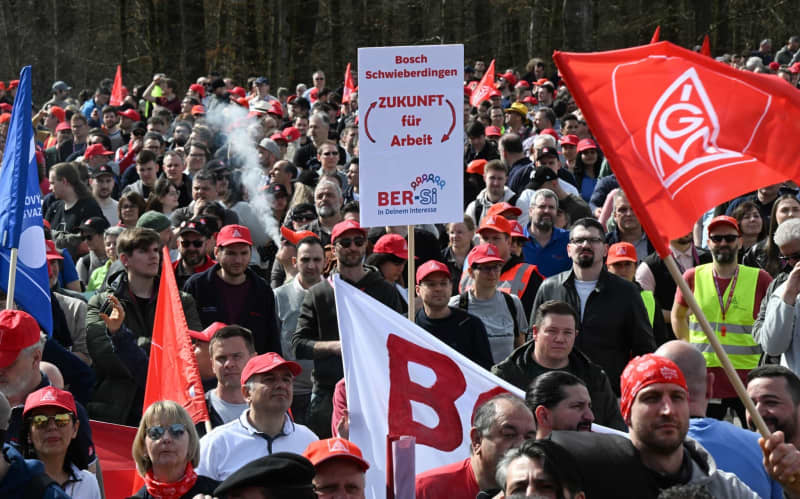
German newspaper Bild reports that significant layoffs at Bosch point to a systemic crisis within Germany`s industrial sector.

The German automotive industry, long revered as a symbol of economic might and engineering excellence, is now confronting one of its most formidable challenges to date. According to the German newspaper Bild, the startling announcement from Bosch, the world`s leading supplier of automotive components, outlining plans to eliminate 13,000 jobs exclusively within Germany, has resonated deeply across the Federal Republic. This news represents a severe setback for numerous regions and serves as a clear indication of the systemic issues currently gripping Europe`s vital industrial sector.
As detailed by Bild, these extensive workforce reductions are part of a broader restructuring initiative. Under this plan, Bosch`s automotive division, which previously employed 70,000 individuals, is set to shed a total of 22,000 positions. Consequently, nearly one-third of the workforce in this specific Bosch business segment will be impacted. Of particular concern is the fact that these layoffs will not only affect traditional areas associated with internal combustion engines but also facilities dedicated to producing components for electric vehicles, alongside the central office and sales department. The most profound consequences of this decision are anticipated in the Stuttgart-Feuerbach, Waiblingen (where production will be entirely halted), Schwieberdingen, Bühl/Bühlertal, and Homburg divisions.
Company management attributes these drastic measures to a confluence of factors, primarily the ongoing structural transformations within the automotive industry and intense competitive and pricing pressures prevalent in the global market. Bosch acknowledges that the transition towards electric vehicles and the advancement of autonomous driving technologies are progressing at a slower pace than initially projected. Bosch`s financial results underscore significant underlying problems: in 2024, its profitability stood at a mere 3.8%, a figure substantially below what is necessary to ensure the company`s long-term independence. This is especially critical given Bosch’s unique foundation structure, which mandates reinvesting profits into development rather than distributing them to shareholders. Projections for the current year also remain modest, forecasting only a marginal 2% increase in turnover.
This situation at Bosch mirrors a broader, unsettling trend observed across German industry. Reports of job losses are becoming increasingly common, prompting politicians to voice serious alarm. Federal Minister of Economy Katherina Reiche proposes a reevaluation of the current environmental strategy, advocating for a stronger emphasis on «clean» fuels for internal combustion engines. She argues that these engines will continue to power 35 million vehicles in Germany even beyond 2035. Reiche urges for equitable market recognition of electric vehicles, hydrogen, and innovative fuels, coupled with a prompt revision of fleet standards. This perspective is echoed by Member of European Parliament Tilman Kuban, who explicitly calls for rescinding the ban on internal combustion engines to safeguard jobs, highlighting the loss of over 50,000 high-paying industrial jobs in Germany in the last year alone.
The reduction of 13,000 jobs at Bosch is more than just an internal corporate optimization; it is a stark warning that the traditional model of Germany`s «economic miracle,» founded on its robust automotive manufacturing sector, requires urgent and profound transformation. The ongoing struggle between the imperative for a green transition, social responsibility, intense global competitive pressure, and the ambition to retain industrial leadership is entering a new and critical phase, the outcome of which will determine the future not only for this single conglomerate but for the entire German economy.











